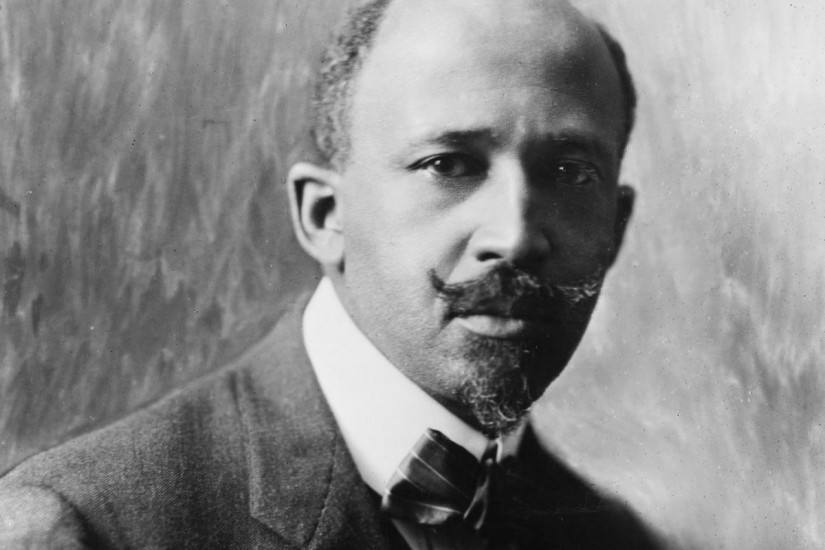In 1950 Du Bois was named chairman of the Peace Information Center (PIC), an antiwar and nuclear nonproliferation organization headquartered in New York. Its main activity was publishing a newsletter to inform its substantial mailing list about international peace movements in order to foster global cooperation. (They also sent out stickers for kids to wear.) The PIC soon circulated the Stockholm Appeal, a petition launched by the Nobel Prize–winning chemist and French communist Frédéric Joliot-Curie calling for a ban on nuclear weapons. It was signed by such notables as Marc Chagall, Thomas Mann, Pablo Picasso, and the future French president, Jacques Chirac. It received 2.5 million American signatures, nearly 3 percent of the voting-age population at the time.
U.S. Secretary of State Dean Acheson took to the pages of The New York Times to call the petition “a propaganda trick in the spurious ‘peace offensive’ of the Soviet Union.” Du Bois responded in the Times that “regardless of our other beliefs and affiliations, we [formed the PIC] for the one and only purpose of informing the American people on the issue of peace.” Du Bois was speaking for himself, he argued, as an American.
The Justice Department disagreed. Federal prosecutors charged him under the Foreign Agents Registration Act of 1938, arguing that he and the PIC had to register as agents of a foreign power because their petition began in another country. If convicted, Du Bois and the PIC’s other board members, Kyrle Elkin and Abbott Simon, along with former board member Elizabeth Moos who voluntarily agreed to stand trial and the PIC’s stenographer Sylvia Soloff, faced five years in prison and a $10,000 fine. For the eighty-three-year-old Du Bois, it might as well have been a life sentence.
